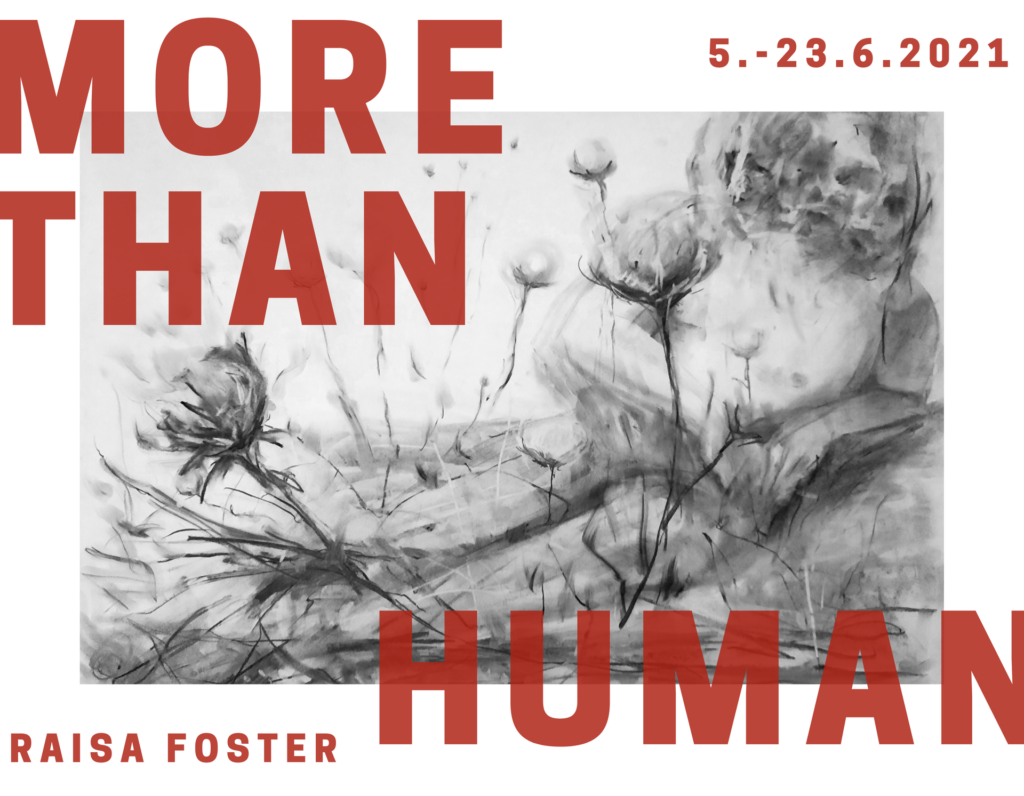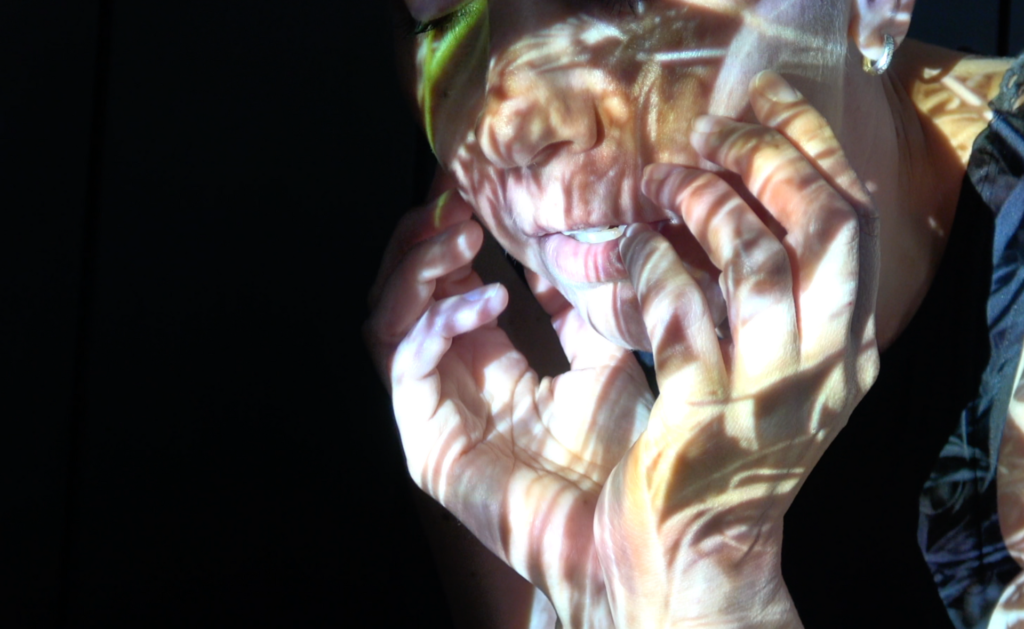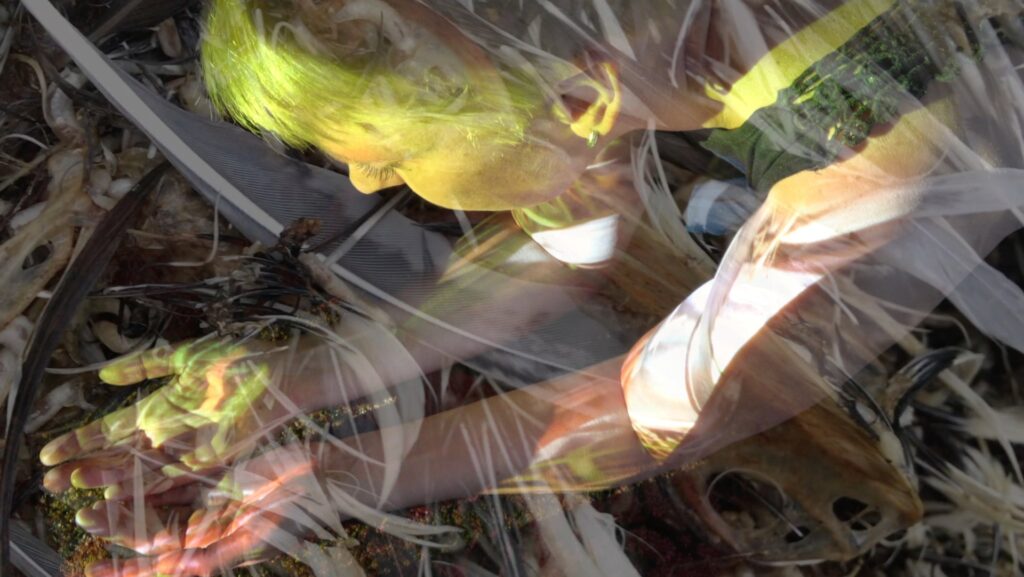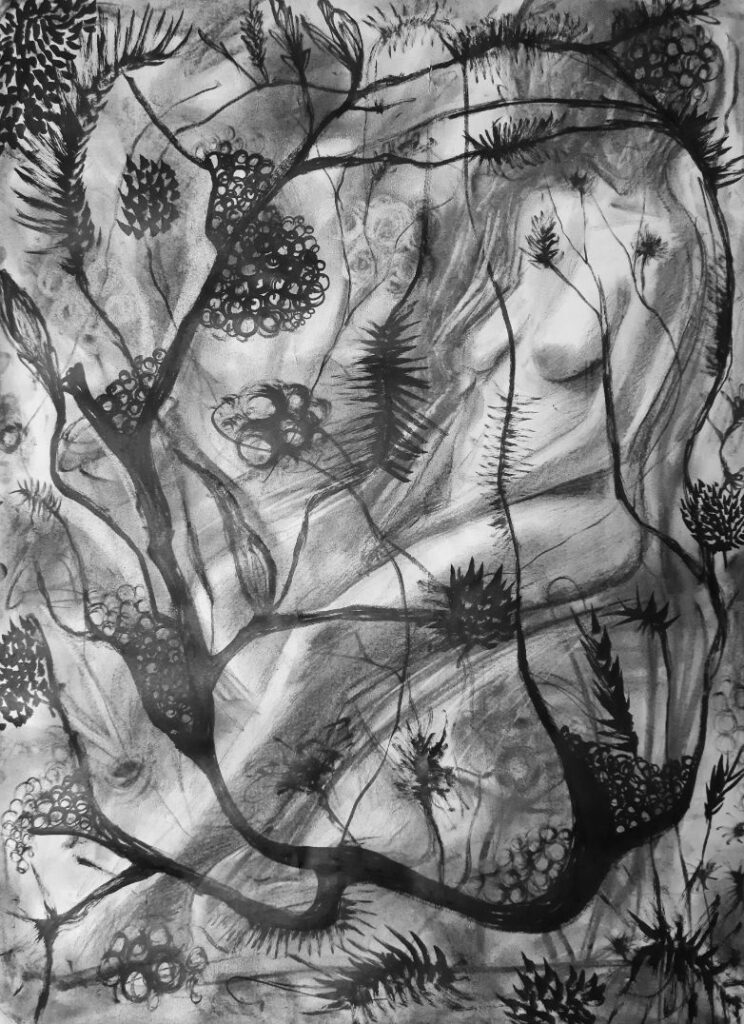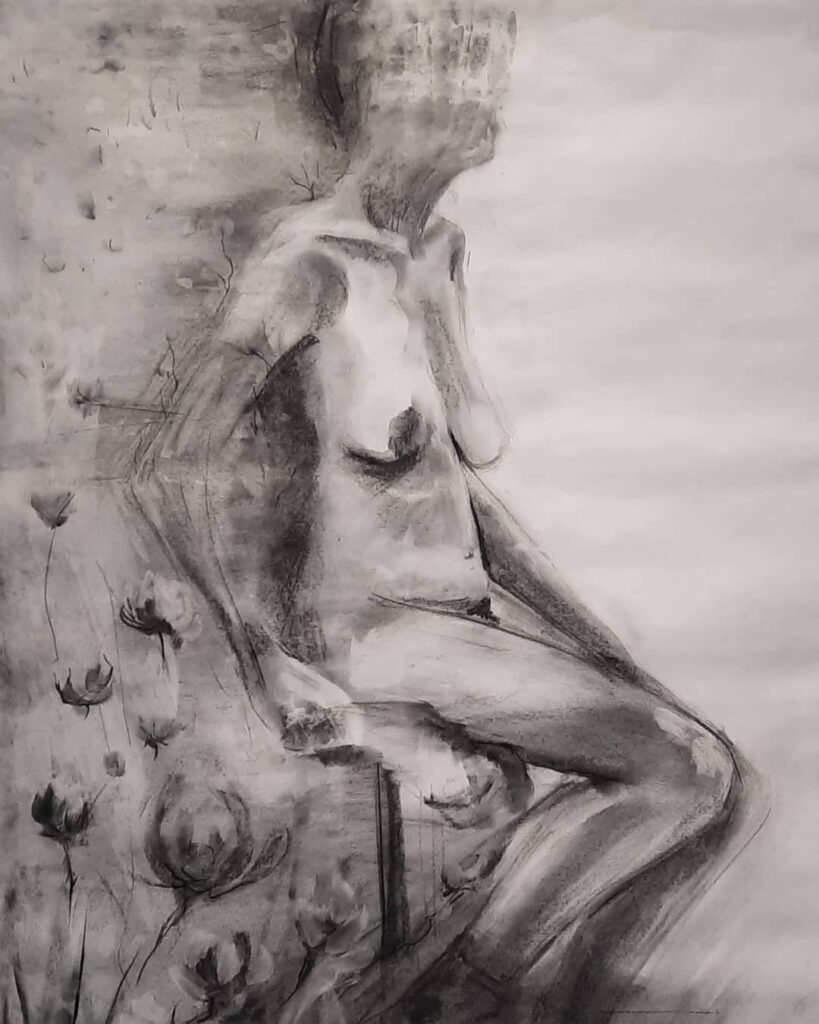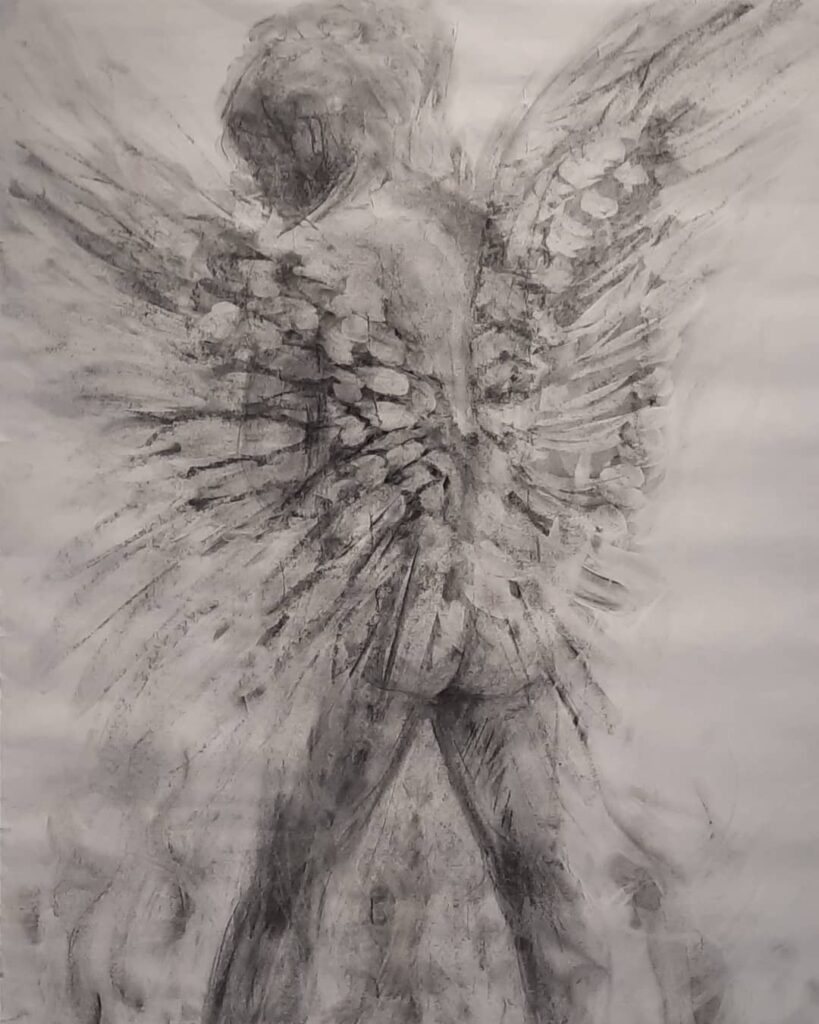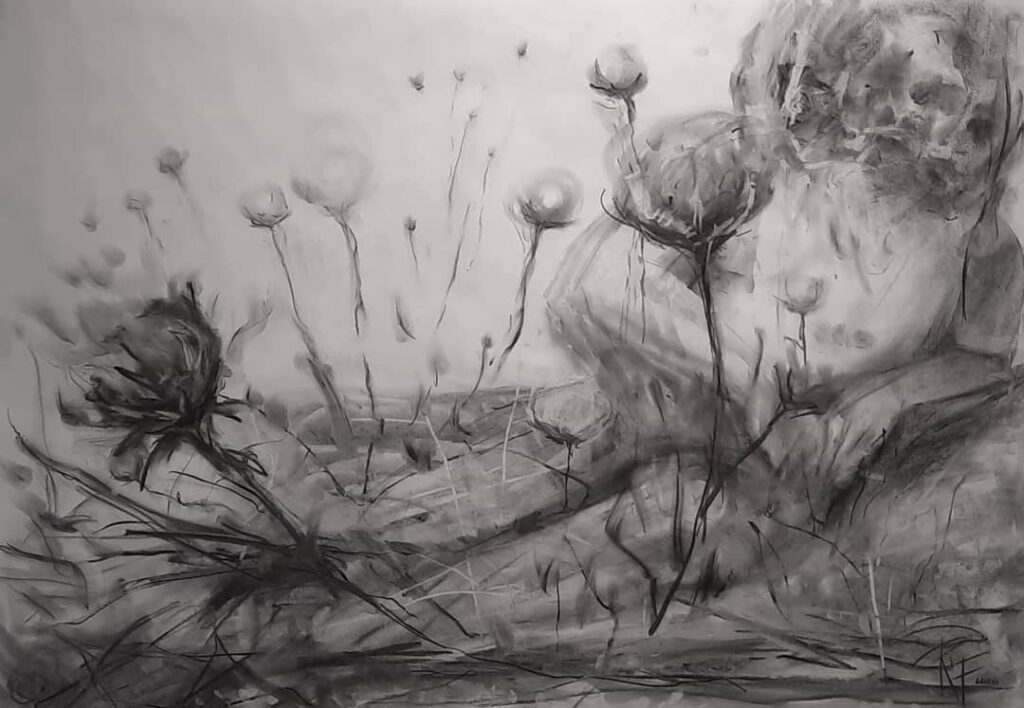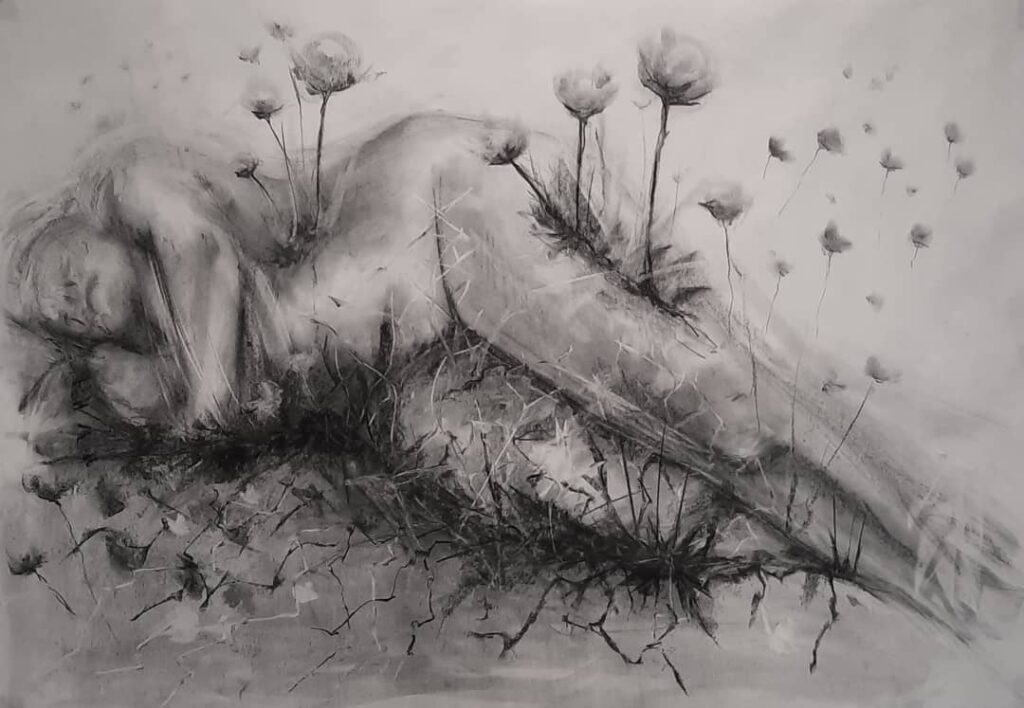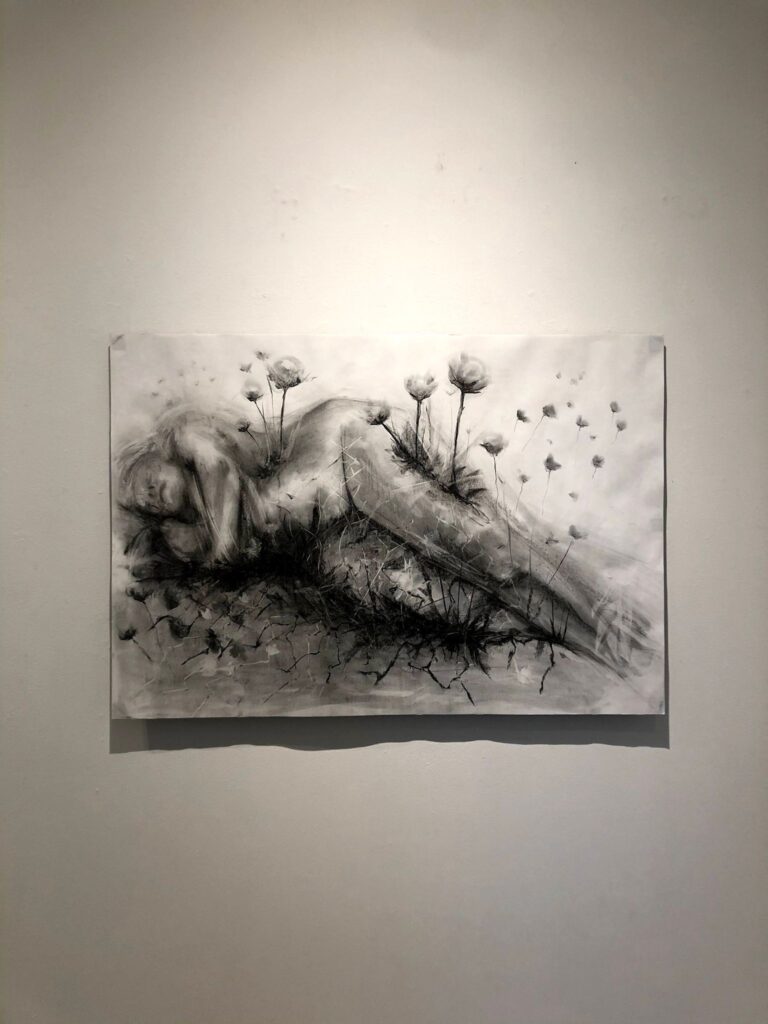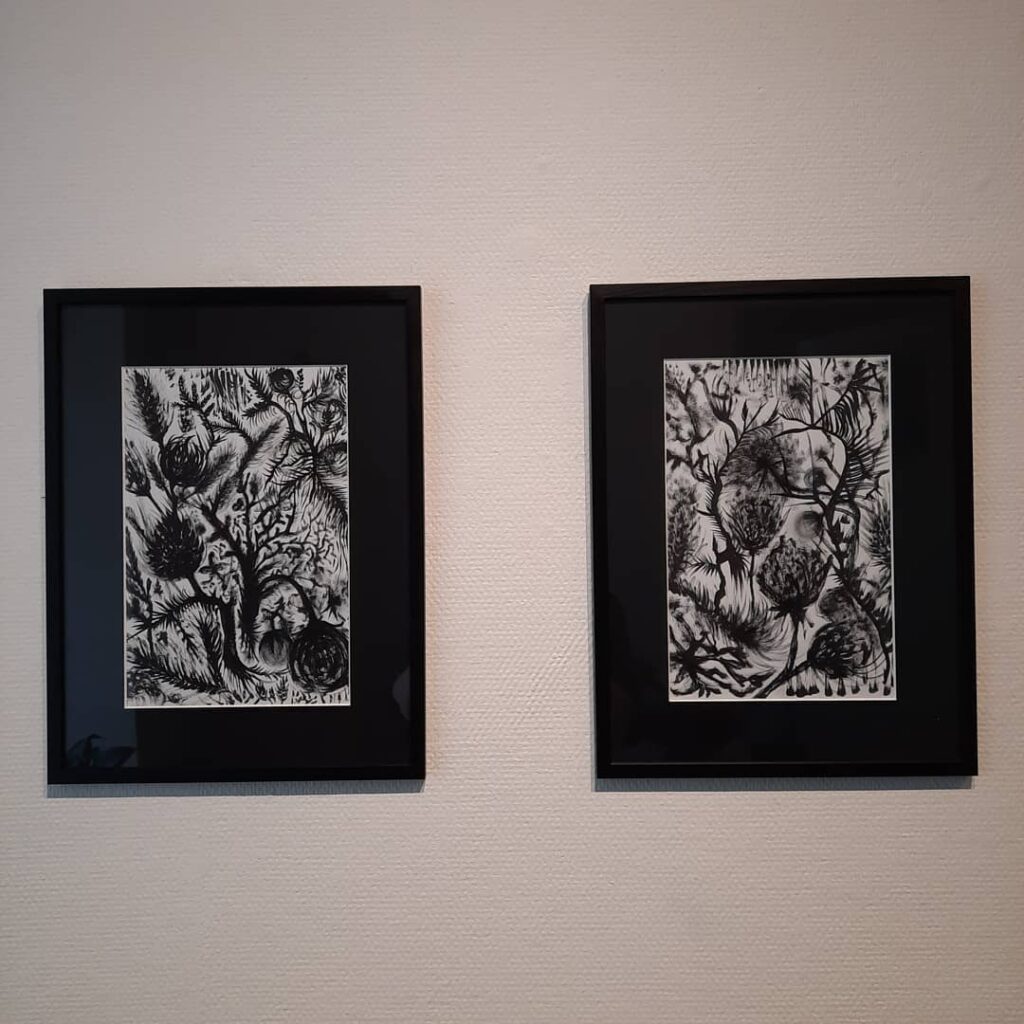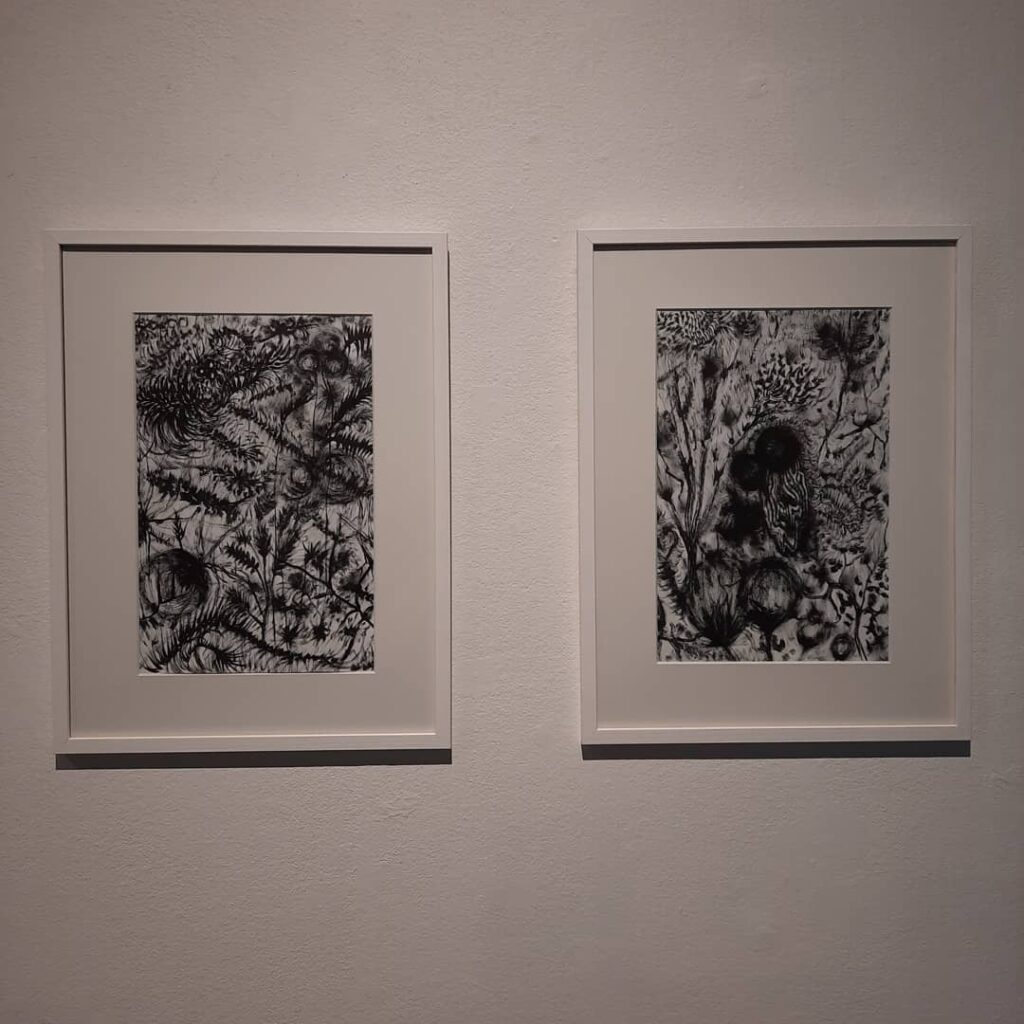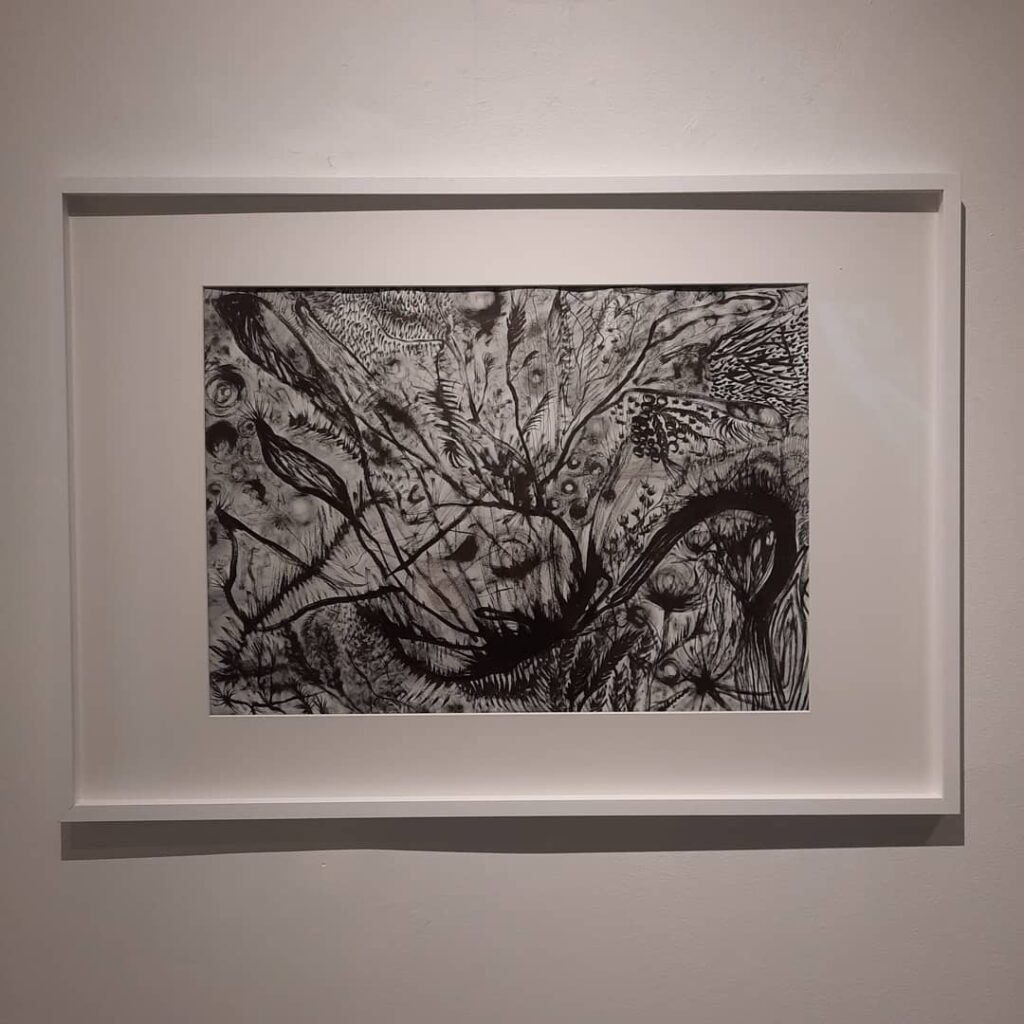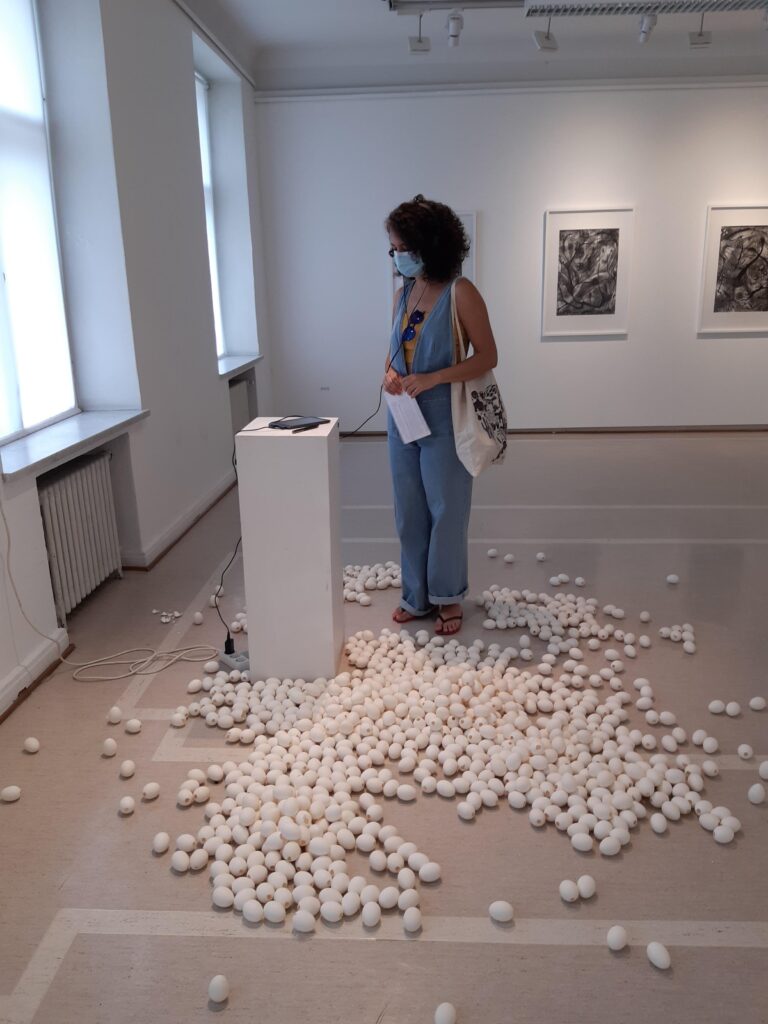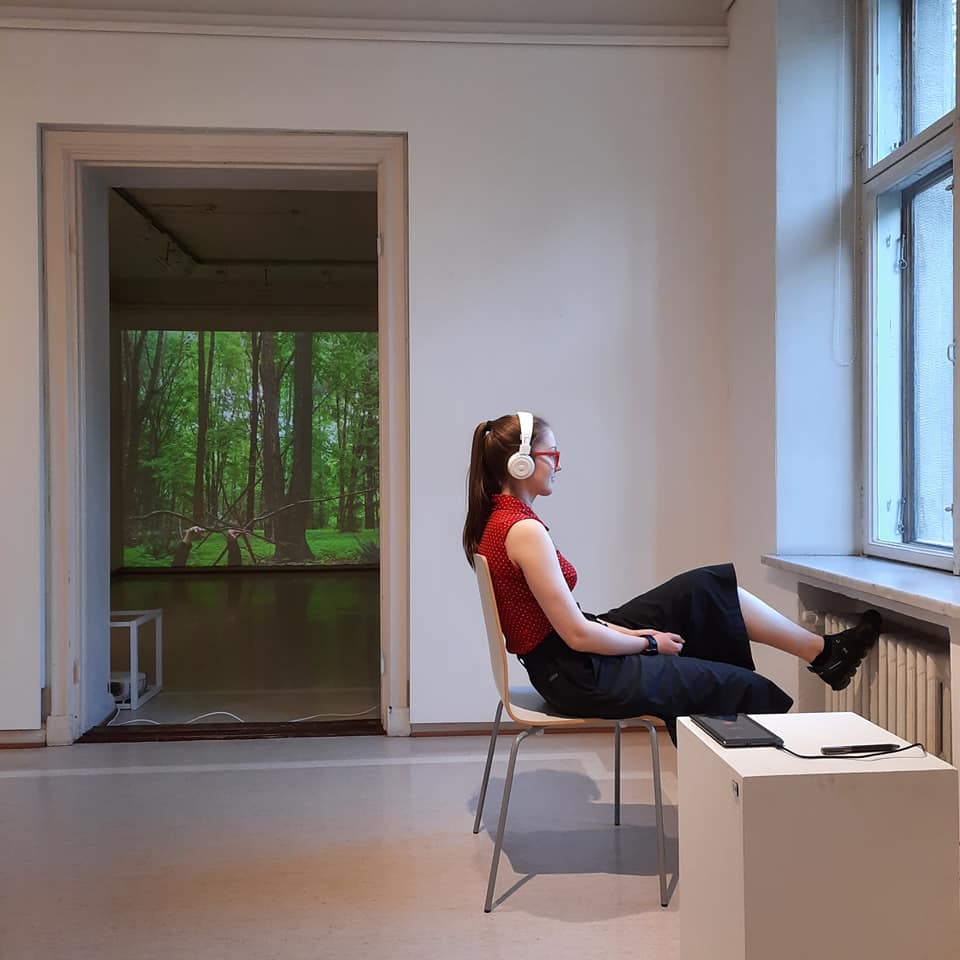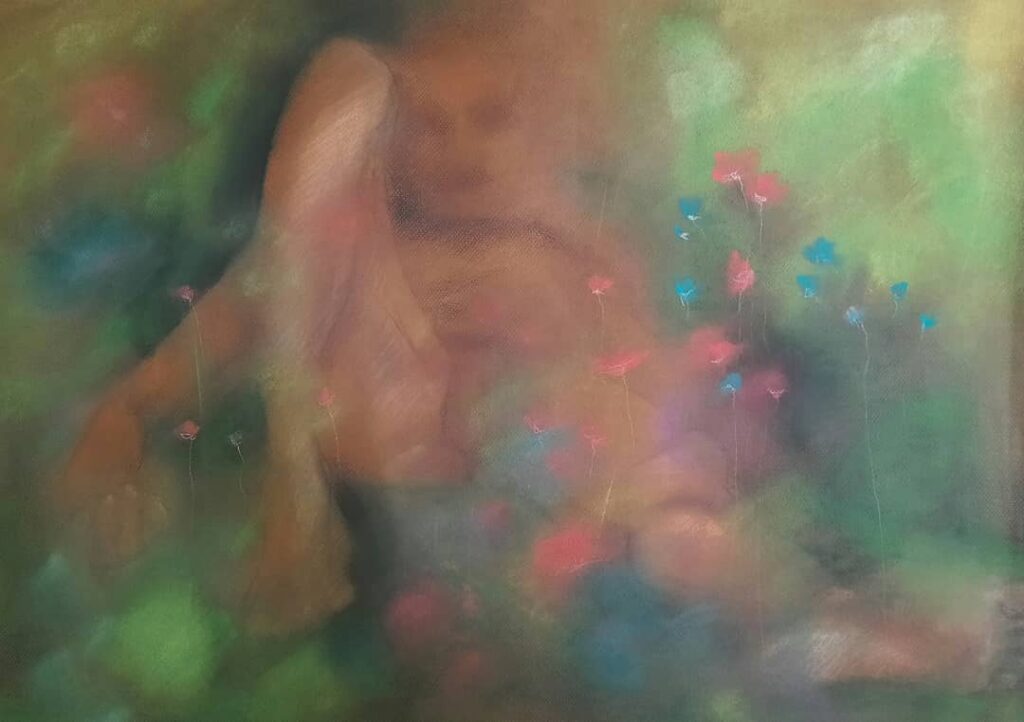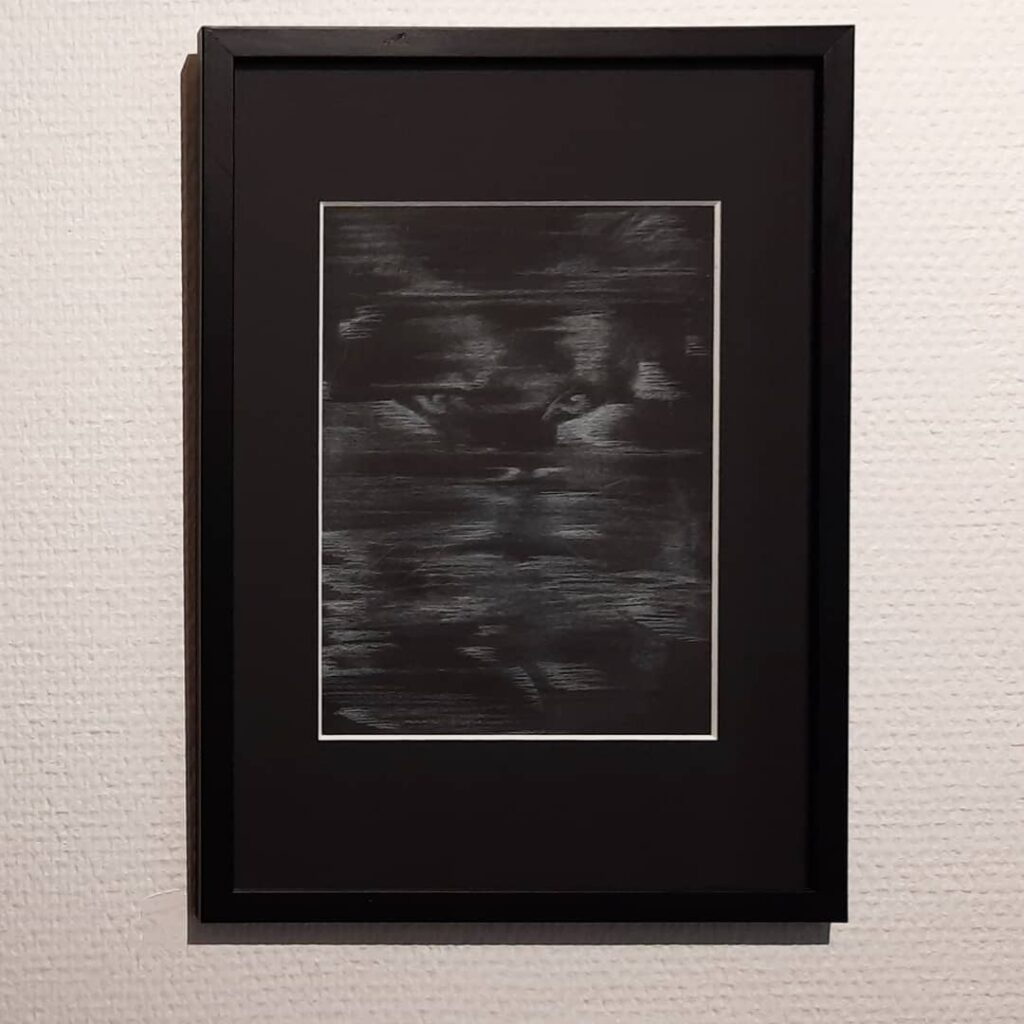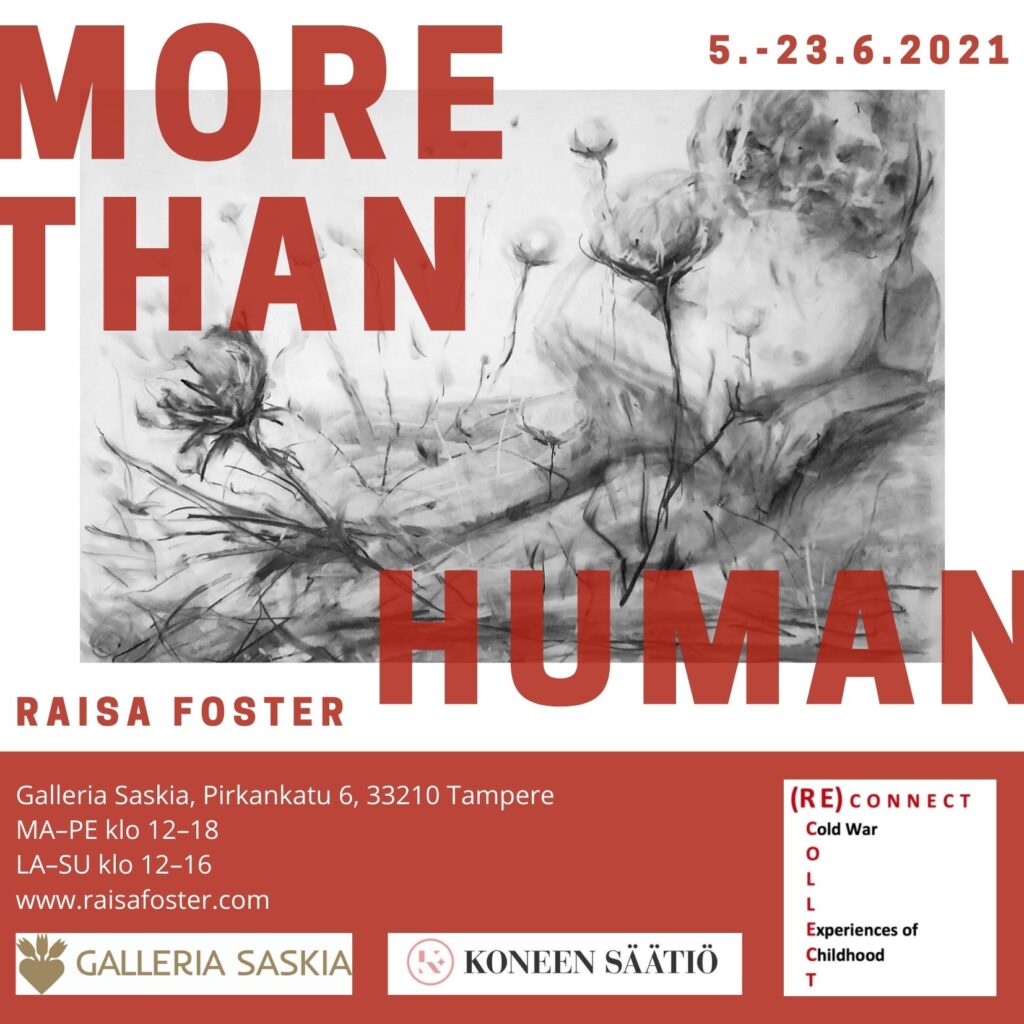“My exhibition consists of charcoal, chalk, and ink drawings as well as sound and video art. The starting point of my multidisciplinary art practice is the human’s embodied relation to the world. We live in and engage with the world not only through our thinking minds but also as emotional and sensing bodies. But this is something that humans tend to increasingly forget. This separation from the living world causes ecological problems, which are, in fact, the problems of our culture: the modern humans have failed to adapt their culture to the planetary boundaries. We live as humans in the world as if we were “pure” conscious beings without a body and a relation with our environment.”
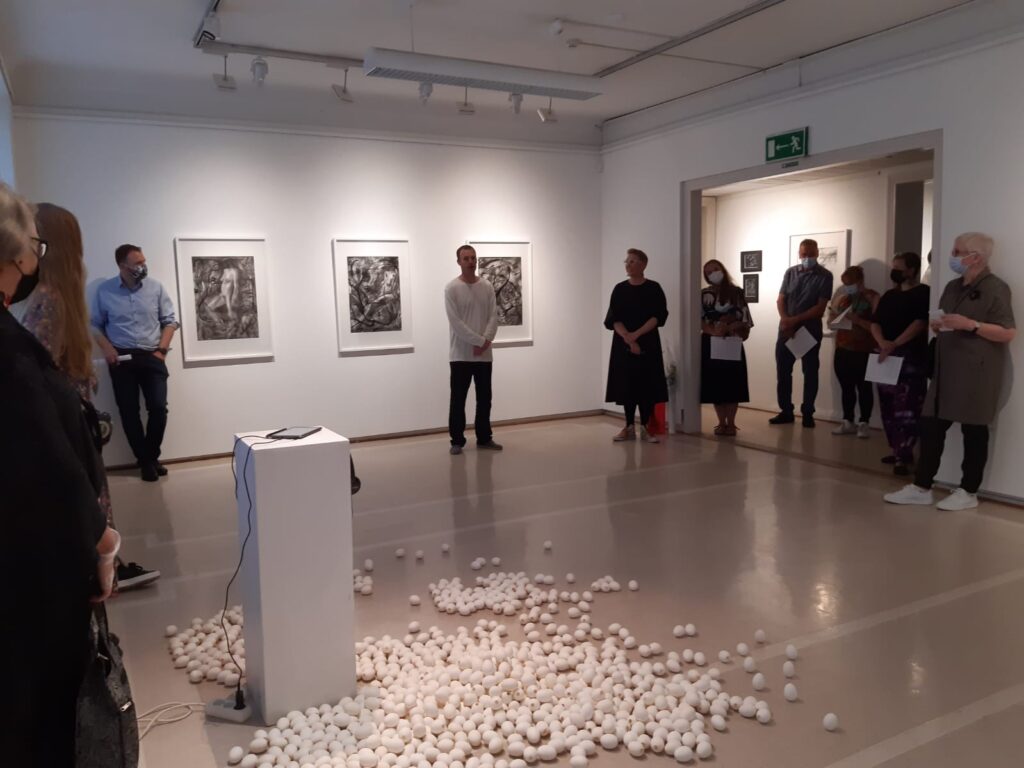
“The exhibition has been created as part of the Re-connect / Re-collect project (Tampere University, Faculty of Education and Culture), in which I worked as a senior researcher. I explore memories that describe childhood experiences in different environments and interactions with other living beings. Through my artworks, I look at how we are in direct contact with the world precisely through our bodies. By studying embodiment, we can also understand how the world is in us. We carry perceptions, emotions, and memories in our living bodies.”
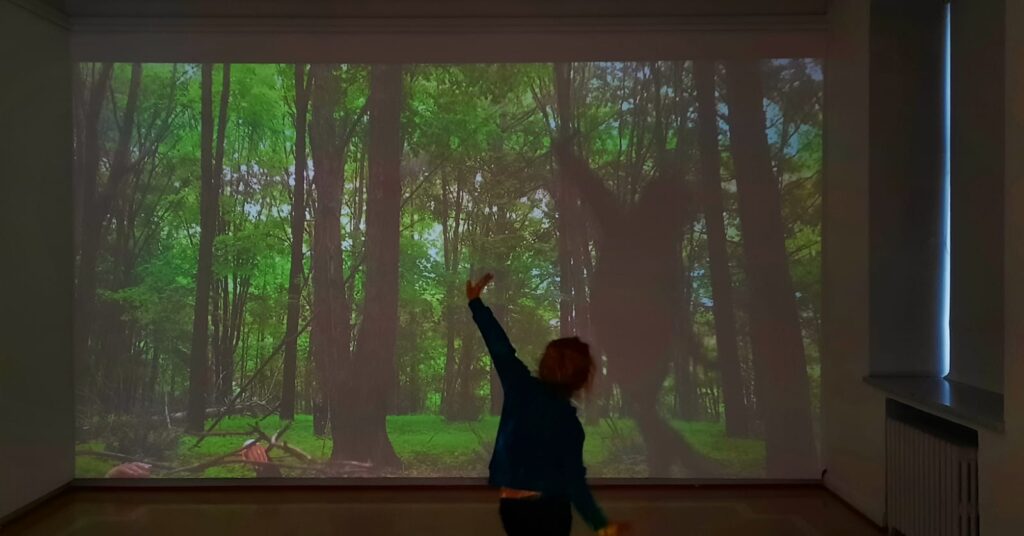
“In my video and sound art, childhood memory stories are combined with my own experiences, poetic and metaphorical narratives, and materials I have previously recorded. My drawings have also been created by “upcycling,” that is, continuing my previous drawings by editing, covering, and destabilizing them. The sensuous body is not only the topic of my drawings, but also the process of drawing itself is a strongly embodied experience. Through observations, coincidences, additions, deletions, lines, and rubbing, I do and undo an image that would breathe and be in motion.”
“For me, art is not “just art,” but transformative action at its best. By speaking and making art with the “more than human world,” I want to emphasize how our lives are inextricably intertwined not only with other people but also with other animals, plants, and the entire web of life. To address the environmental crisis, we need to understand our place as humans in a radically new way. We cannot continue to elevate ourselves above the rest of nature and exploit other lives in pursuit of our own interests. We need to understand that without well-functioning ecosystems, there are no humans either. On the other hand, I firmly believe that adopting a new, more sustainable way of life does not have to mean scarcity and suffering. As we connect with a more than human world, we can find our lives enriched through and in this new and deeply meaningful relationship.”
Raisa Foster
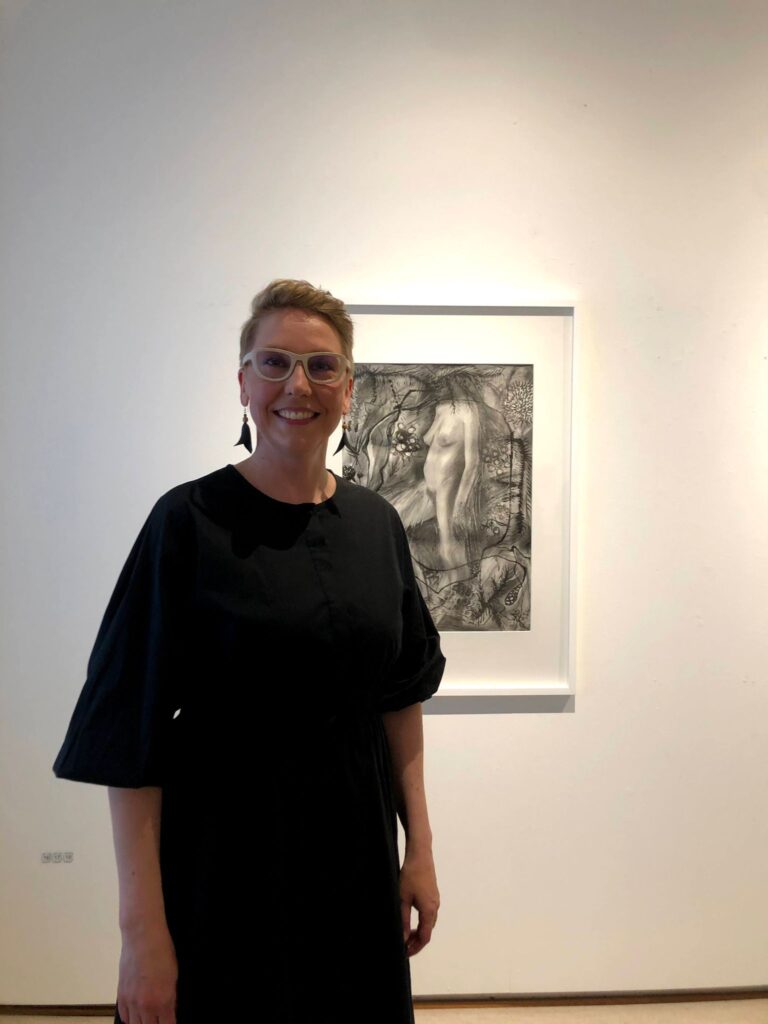
Raisa Foster
Raisa Foster (b. 1976) is a Tampere-based multidisciplinary artist and researcher. She is a doctor of philosophy and adjunct professor at the University of the Arts Helsinki and the University of Eastern Finland. Her practice is restricted neither by the boundary between science and art, nor the methods or mediums of various artforms. She explores current social and ecological issues through dance, video art, and drawing.
